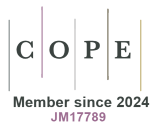Clinical and economic consequences of ozenoxacin vs. other topical antibiotics for the treatment of impetigo: a real-life study in Spain
DOI:
https://doi.org/10.33393/grhta.2022.2439Keywords:
Cost-effectiveness, Impetigo, OzenoxacinAbstract
Background: Impetigo is a common dermatological paediatric infection that can be treated with topical antibiotics: the common are mupirocin (MUP), fusidic acid (FA) and, most recently, ozenoxacin (OZ).
Aim: This study assesses the clinical and economic consequences of the use of OZ vs. MUP and vs. FA for the treatment of impetigo in routine clinical practice in Spain.
Methods: This is a retrospective observational study using real-life data from electronic medical records of patients with impetigo who started treatment with OZ, MUP or FA (maximum follow-up: 3 months; n = 10,974). We compared treatment duration, comorbidities, use of systemic medication, complications, utilization of resources and associated costs across treatments (p<0.05). Cost-effectiveness of OZ was assessed from a social perspective. Complication rates and treatment duration were the effectiveness measures.
Results: Mean age was 12.6 (standard deviation [SD]: 16.6) years; 48.6% were male; treatment: 9.3% (OZ), 56.4% (MUP), 34.5% (FA). The percentage of patients ending treatment after 2 weeks was 87.6% (OZ) vs. 83.2% (MUP) vs. 82.4% (FA); p<0.001; complication rates were 1.8% (OZ), 3.3% (MUP) and 3.2% (FA), p<0.001; mean costs were €158 (OZ), €265 (MUP) and €287 (FA), p<0.001.
Conclusions: OZ is a cost-effective and dominant alternative for the treatment of impetigo.
References
- Hartman-Adams H, Banvard C, Juckett G. Impetigo: diagnosis and treatment. Am Fam Physician. 2014;90(4):229-235. PMID:25250996
- Schachner LA, Andriessen A, Benjamin LT, et al. Do antimicrobial resistance patterns matter? An algorithm for the treatment of patients with impetigo. J Drugs Dermatol. 2021;20(2):134-142. https://doi.org/10.36849/JDD.5745 PMID:33538559 DOI: https://doi.org/10.36849/JDD.5745
- Gropper S, Albareda N, Chelius K, et al; Ozenoxacin in Impetigo Trial Investigators Group. Ozenoxacin 1% cream in the treatment of impetigo: a multicenter, randomized, placebo- and retapamulin-controlled clinical trial. Future Microbiol. 2014;9(9):1013-1023. https://doi.org/10.2217/fmb.14.78 PMID:25340832 DOI: https://doi.org/10.2217/fmb.14.78
- Rosen T, Albareda N, Rosenberg N, et al. Efficacy and safety of ozenoxacin cream for treatment of adult and pediatric patients with impetigo: a randomized clinical trial. JAMA Dermatol. 2018;154(7):806-813. https://doi.org/10.1001/jamadermatol.2018.1103PMID:29898217 DOI: https://doi.org/10.1001/jamadermatol.2018.1103
- Wren C, Bell E, Eiland LS. Ozenoxacin: A novel topical quinolone for impetigo. Ann Pharmacother. 2018;52(12):1233-1237. https://doi.org/10.1177/1060028018786510PMID:29962213 DOI: https://doi.org/10.1177/1060028018786510
- Sicras-Mainar A, Enriquez JL, Hernández I, Sicras-Navarro A, Aymerich T, Leon M. PMU146 validation and representativeness of the Spanish BIG-PAC database: integrated computerized medical records for research into epidemiology, medicines and health resource use (real world evidence). Value Health. 2019;22:S734. https://doi.org/10.1016/j.jval.2019.09.1764 DOI: https://doi.org/10.1016/j.jval.2019.09.1764
- Instituto Nacional de Estadística. Average wage by sex and age. Online https://www.ine.es/dynt3/inebase/index.htm?padre=4563&capsel=4563 (Accessed May 2022)










